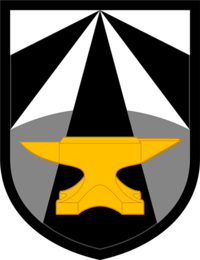Overview
Gaps
Environmental Health & Protection
Heat Exposure
- Performance and injury predictions
- Return to duty criteria following heat injury
- Microclimate cooling
- Technologies for optimal hydration status management
Altitude/Hypoxia Environments
- Performance and injury predictions to hypoxia
- Technologies to support sustained operations at high altitudes
Multi-environmental Stressors
- Performance and injury predictions for mixed extreme environments in training and operations
Arctic Operations
- Performance and injury predictions during cold weather operations
- Performance degradation in manual dexterity to cold climates
- Cognitive performance degradation in cold climates
Toxicant Exposure
- Accurate dose information for exposure to industrial chemicals, mixtures and material hazards
- Technologies and wearable devices to assess exposures to environmental chemicals and toxic material hazard
Biomarker Panels to Assess SM Impact
- Toxicant environmental health hazards
- Industrial chemical mixtures found in dense urban environments
Acute and Chronic Health Effects Linked to Response-Biomarkers
- Biomarker detection of exposure threats
- Biomarkers of prediction for adverse SM health outcomes
Injury Prevention & Reduction
Training and Operational Environments
- Improved understanding of the physiological mechanisms underlying musculoskeletal injuries
- Advanced technologies for real-time assessments outside of the clinic
- Physical fitness training strategies to reduce the risk of injury from load, jolt, vibration, etc.
- Countermeasures to mitigate injury risk potential for exploitation in training environments
- Development of injury criteria for Personal Protection Equipment against blunt, blast and ballistic trauma threats
- Injury criteria and medical performance standards to protect against hearing loss, vestibular injury, and ocular facial injury
- Standards and criteria to identify when Warfighters are capable to Return-to-Duty (RTD), fully able to perform demanding tasks
Physiological Health & Performance
Fatigue Mechanisms and Countermeasures
- Novel mechanisms in understanding/manipulating sleep for performance and health
- Ability to monitor biologically- and medically-relevant sleep architecture in an ecologically-relevant, open architecture manner for management of Warfighter fatigue, attention and readiness
- Non-pharmacological manipulation of alertness and sleep
- Use of VALIDATED wearables for Sleep as an indicator/predictor of performance, safety and health
- Management of Circadian rhythms
Nutrition Solutions, Countermeasures and Strategies
- Nutrition solutions to optimize recovery and sustain the Joint Warfighter under extreme conditions
- Nutritional interventions for mission reset and injury recovery -- countermeasures for physical and cognitive degradation following military operations
- Protection strategies to mitigate operational stress
- Tailored, modular ration components to improve readiness
Physiological Basis of Resilience and Cognitive Readiness
- Sustain robust cognitive function in Service members under acute operational psychological/physiological stressors
- Promote adaptability to novel, militarily-relevant demands and improve cognitive function in Service members over the course of a training cycle or career
Psychological Health & Resilience
Service Member Resilience
- Evidence-based approaches to protect, maintain, optimize and enhance Service member and Family psychological fitness/readiness
- Evidence-based individual and group strategies to promote resilience to operational stressors and enhance psychological health and readiness
- Resilience training approaches that leverage technologies and accelerate learning and skills acquisition
- Operationally relevant metrics for Total Force Fitness domains (e.g., social, spiritual, psychological, behavioral)
Behavioral Health
- Objective tools and technologies to better prevent, diagnose, and treat mental health issues such as suicide and substance abuse
- Non-self-report real-time assessment technologies of psychological well-being and status
- Telemedicine and mental/behavioral health approaches that overcome barriers/challenges
- Identification/validation of biomarkers for Post-Traumatic Stress Disorder (PTSD)
- Translational efforts on the diagnosis and psychiatric/psychotherapeutic treatment of PTSD
- Promote provider adoption and fidelity in practice of evidence-based interventions for restoration of psychological health
 An official website of the United States government
An official website of the United States government  ) or https:// means you've safely connected to the .mil website. Share sensitive information only on official, secure websites.
) or https:// means you've safely connected to the .mil website. Share sensitive information only on official, secure websites.


